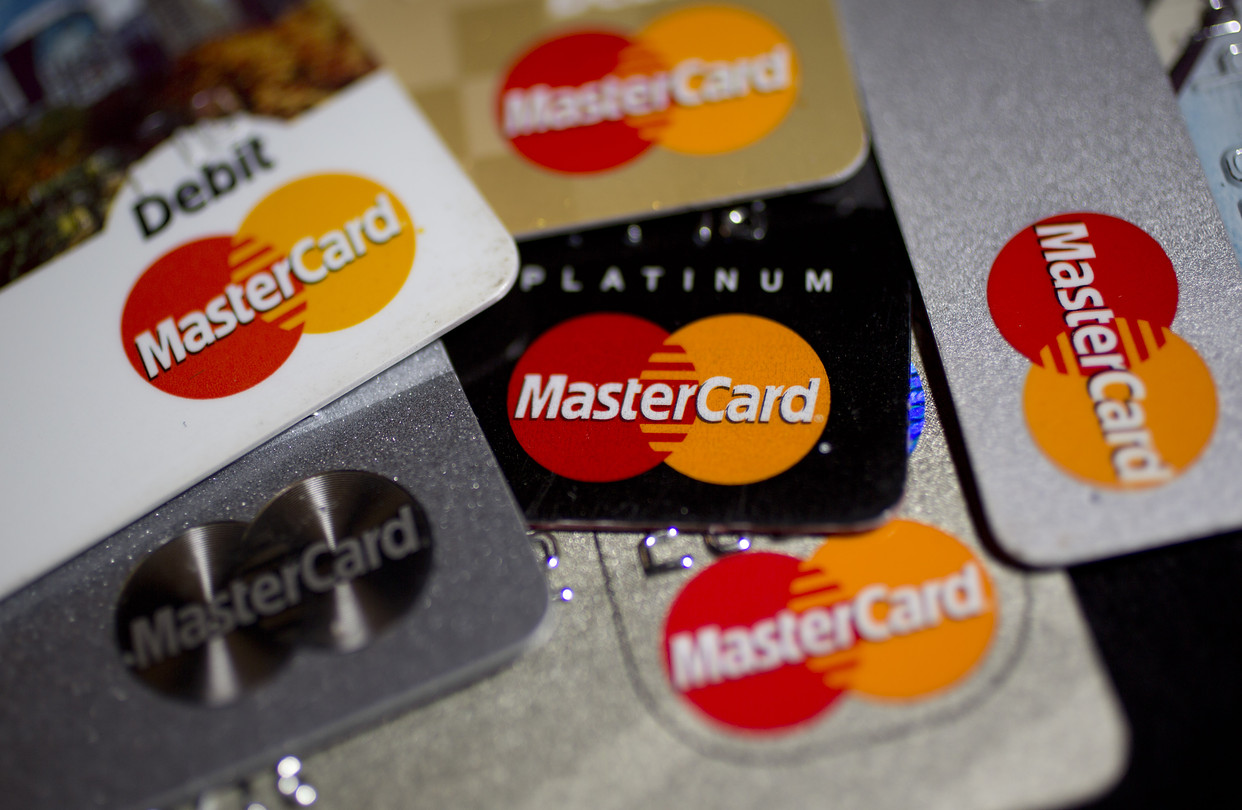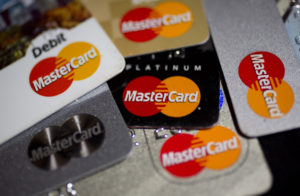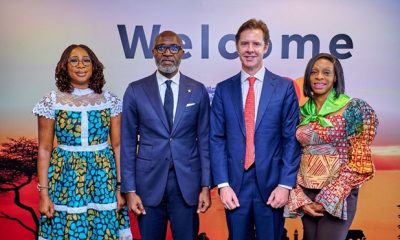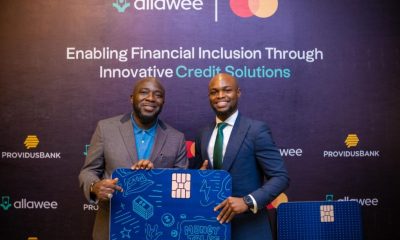Technology
NetPlus, MasterCard Deliver e-Commerce Payment App


By Dipo Olowookere
A giant leap forward has been made in the African e-commerce sector plagued by cash, with the majority of payments still being made in cash at the point of delivery.
The industry is predicted to generate yearly e-commerce sales in Africa of $75 billion by 2051 and in Nigeria alone; it generates over $1 billion every year and continues to grow exponentially.
But the biggest challenge facing online retailers has been cash, as it poses logistical issues and puts the consumer, merchant and delivery service at risk.
However, this is now a thing of the past with the development of a payment solution created by a Nigerian tech start-up called NetPlus in collaboration with MasterCard, a leader in payment system in the world.
Called the MasterCard e-commerce solution, it empowers the consumer, the e-retailer as well as the delivery service by providing a simple and secure digital solution.
Consumers can pre-authorise the payment when placing their order online, the e-retailer is given a sense of comfort and dispatches the goods via a delivery service, who is able to use the MasterCard e-commerce app to authorise the release of the payment once the consumer approves, ensuring the merchant is paid immediately.
A key feature is that if the consumer is dissatisfied with their package the transaction can be voided and the funds immediately released, so there is no delay – one of the biggest points of frustration for consumers buying online in Africa.
The process takes three simple steps as highlighted below;
Step 1: The buyer (consumer) completes an online purchase and pre-authorisation is placed on the funds until the goods or service is delivered. The money is not taken out of their bank account, but is simply held until delivery is made.
Step 2: The seller (e-retailer) will dispatch the goods with help of a delivery service, the delivery service will have access to the MasterCard e-commerce app on either their mobile or tablet. This allows them to complete the transaction on behalf of the e-retailer once the delivery has been completed. This ensures the funds flow directly to the e-retailer and that the delivery service does not handle cash unnecessarily.
Step 3: On delivery the consumer is able to inspect their goods and confirm if they are satisfied. The transaction is then verified on the app by the delivery service representative, and as an extra security measure the consumer will enter the last four digits of their bank card to complete the transaction. If the consumer is not happy with their package, because they received the wrong size for example, the transaction is immediately voided on the app and the money immediately reflects back in their bank account.
Commenting on this development, Vice President and Area Business Head for West Africa at MasterCard, Ms Omokehinde Adebanjo, stated that, “Cash has held the sector back from reaching its full potential in Africa.
“We have invested a great deal of energy and resources to develop a workable solution that will meet the diverse needs of merchants and consumers across the continent, and world.
“It is fitting that our partnership with NetPlus, an African-born tech company, has resulted in us achieving our goal of digitizing the e-commerce sector.”
On his part, founder and CEO of NetPlus, Mr Wole Faroun, noted that, “The solution comes with extensive benefits for merchants and consumers.
“For e-retailers, the pre-authentication reflects commitment on the part of the consumer to the purchase, as well as guarantees real time payment and improved liquidity.
“Consumers benefit from renewed confidence in online shopping, peace of mind as the payment is only processed on delivery without the need for cash.”
Particularly exciting about the partnership between MasterCard and the tech start-up is the fact that NetPlus is the first African start-up to be selected by the MasterCard Start Path programme.
The initiative is open to start-ups from Africa and across the world who are rethinking banking and payments and who are well established already, having secured significant investment.
During a six-month virtual programme, Start Path provides start-ups with the operational support, mentorship and investment they need to develop the next generation of commerce solutions and grow their operations.
NetPlus was one of five start-ups chosen globally for the last programme of 2016, and Mr Faroun along with his team have already benefited from knowledge sharing and mentorship sessions in New York, London and Singapore where they were able to meet with other start-ups and MasterCard customers.
The Nigerian tech company proves that there is tremendous talent on the continent and that start-ups are contributing significantly to the growth of Africa.
Applications for the next six-month virtual program will be accepted through 11:59 pm ET on Tuesday, August 1, 2017.
Interested start-ups can visit https://www.startpath.com/ for additional information and to submit an application.
Technology
Leticia Otomewo Becomes Secure Electronic Technology’s Acting Secretary

By Aduragbemi Omiyale
One of the players in the Nigerian gaming industry, Secure Electronic Technology (SET) Plc, has appointed Ms Leticia Otomewo as its acting secretary.
This followed the expiration of the company’s service contract with the former occupier of the seat, Ms Irene Attoe, on January 31, 2026.
A statement to the Nigerian Exchange (NGX) Limited on Thursday said Ms Otomewo would remain the organisation’s scribe in an acting capacity, pending the ratification and appointment of a substantive company secretary at the next board meeting.
She was described in the notice signed by the Managing Director of the firm, Mr Oyeyemi Olusoji, as “a results-driven executive with 22 years of experience in driving business growth, leading high-performing teams, and delivering innovative solutions.”
The acting secretary is also said to be “a collaborative leader with a passion for mentoring and developing talent.”
“The company assures the investing public that all Company Secretariat responsibilities and regulatory obligations will continue to be discharged in full compliance with the Companies and Allied Matters Act, applicable regulations, and the Nigerian Exchange Limited Listing Rules,” the disclosure assured.
Meanwhile, the board thanked Ms Attoe “for professionalism and contributions to the Company during the period of her engagement and wishes her well in her future endeavours.”
Technology
Russia Blocks WhatsApp Messaging Service

By Adedapo Adesanya
The Russian government on Thursday confirmed it has blocked the WhatsApp messaging service, as it moves to further control information flow in the country.
It urged Russians to use a new state-backed platform called Max instead of the Meta-owned service.
WhatsApp issued a statement earlier saying Russia had attempted to “fully block” its messaging service in the country to force people toward Max, which it described as a “surveillance app.”
“Today the Russian government attempted to fully block WhatsApp in an effort to drive people to a state-owned surveillance app,” WhatsApp posted on social media platform X.
“Trying to isolate over 100 million users from private and secure communication is a backwards step and can only lead to less safety for people in Russia,” it said, adding: “We continue to do everything we can to keep users connected.”
Russia’s latest move against social media platforms and messaging services like WhatsApp, Signal and Telegram comes amid a wider attempt to drive users toward domestic and more easily controlled and monitored services, such as Max.
Russia’s telecoms watchdog, Roskomnadzor, has accused messaging apps Telegram and WhatsApp of failing to comply with Russian legislation requiring companies to store Russian users’ data inside the country, and of failing to introduce measures to stop their platforms from being used for allegedly criminal or terrorist purposes.
It has used this as a basis for slowing down or blocking their operations, with restrictions coming into force since last year.
For Telegram, it may be next, but so far the Russian government has been admittedly slowing down its operations “due to the fact that the company isn’t complying with the requirements of Russian legislation.”
The chat service, founded by Russian developers but headquartered in Dubai, has been a principal target for Roskomnadzor’s scrutiny and increasing restrictions, with users reporting sluggish performance on the app since January.
Technology
Nigerian AI Startup Decide Ranks Fourth Globally for Spreadsheet Accuracy

By Adedapo Adesanya
Nigerian startup, Decide, has emerged as the fourth most accurate Artificial Intelligence (AI) agent for spreadsheet tasks globally, according to results from SpreadsheetBench, a widely referenced benchmark for evaluating AI performance on real-world spreadsheet problems.
According to the founder, Mr Abiodun Adetona, the ranking places Decide alongside well-funded global AI startups, including Microsoft, OpenAI, and Anthropic.
Mr Adetona, an ex-Flutterwave developer, also revealed that Decide now has over 3,000 users, including some who are paying customers, a signal to the ability of the startup to scale in the near future.
SpreadsheetBench is a comprehensive evaluation framework designed to push Large Language Models (LLMs) to their limits in understanding and manipulating spreadsheet data. While many benchmarks focus on simple table QA, SpreadsheetBench treats a spreadsheet as a complex ecosystem involving spatial layouts, formulas, and multi-step reasoning. So far, only three agents rank higher than Decide, namely Nobie Agent, Shortcut.ai, and Qingqiu Agent.
Mr Adetona said SpreadsheetBench measures how well AI agents can handle practical spreadsheet tasks such as writing formulas, cleaning messy data, working across multiple sheets, and reasoning through complex Excel workflows. Decide recorded an 82.5% accuracy score, solving 330 out of 400 verified tasks.
“The result reflects sustained investment in applied research, product iteration, and learning from real-world spreadsheet workloads across a wide range of use cases,” Mr Adetona told Business Post.
For Mr Adetona, who built Decide out of frustration with how much time professionals spend manually cleaning data, debugging formulas, and moving between sheets, “This milestone highlights how focused engineering and domain-specific AI development can deliver frontier-level performance outside of large research organisations. By concentrating on practical business data problems and building systems grounded in real user environments, we believe smaller teams can contribute meaningfully to advancing applied AI.”
“For Decide, this is a foundation for continued progress in intelligent spreadsheet and analytics automation,” he added.
-

 Feature/OPED6 years ago
Feature/OPED6 years agoDavos was Different this year
-
Travel/Tourism10 years ago
Lagos Seals Western Lodge Hotel In Ikorodu
-

 Showbiz3 years ago
Showbiz3 years agoEstranged Lover Releases Videos of Empress Njamah Bathing
-

 Banking8 years ago
Banking8 years agoSort Codes of GTBank Branches in Nigeria
-

 Economy3 years ago
Economy3 years agoSubsidy Removal: CNG at N130 Per Litre Cheaper Than Petrol—IPMAN
-

 Banking3 years ago
Banking3 years agoSort Codes of UBA Branches in Nigeria
-

 Banking3 years ago
Banking3 years agoFirst Bank Announces Planned Downtime
-

 Sports3 years ago
Sports3 years agoHighest Paid Nigerian Footballer – How Much Do Nigerian Footballers Earn



















